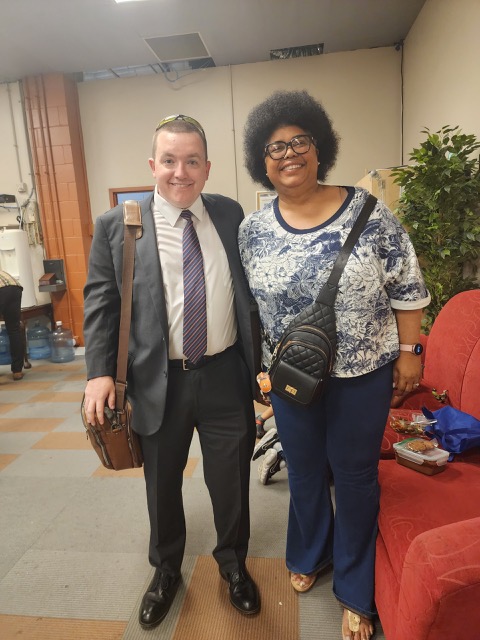July 20, 2024
This article written by John Heiderscheidt originally appeared in The Southland Journal (Chicago, IL) — In a previous article for The Southland Journal, I argued that sanctuary policy needs to be re-imagined. Sanctuary policy is not new, but the landscape around the admission of new arrivals to the United States has changed radically since we first adopted local sanctuary policy under Harold Washington in 1985. More recently, former Il. Gov. Rauner signed legislation implementing a statewide sanctuary policy. Many Chicago and Cook County residents favor ending that policy entirely, though the Chicago City Council refused to submit the question to the people in 2023.
Ending sanctuary policy entirely in one fell swoop today would be as unwise as implementing sanctuary policy in one fell swoop was in 1985. It may satisfy our friends and neighbors on the far-right side of the political spectrum who see immigration as a zero-sum loss for society. But the reality is that a wholesale end to sanctuary policy threatens to break up non-violent, law-abiding, tax-paying family units in a way that is beneath the hallmark ideals of our country. Virtually no one would be comfortable with mass expulsion if forced to observe its effects directly. Finally, the economic reality of declining birth rates and stagflation would only be worsened by a mass expulsion of law-abiding, working, tax-paying residents without lawful immigration status.
At the same time, it is a rudimentary truth that our elected officials have failed to keep the people of Chicago and Cook County safe from violent criminal offenders – migrant or resident. When police-reform advocates refer to bogus data in an attempt to tell us crime is down, it reminds me of the old adage, “figures lie, and liars figure.”
Whether our friends and neighbors on the far-left side of the political spectrum would acknowledge it or not, it is a grim reality that migrants to America – recent or not – can become violent criminal offenders who plainly threaten public safety. These examples manifest themselves in the most tragic ways in cases like Laken Riley’s, but more often lead to an increase in thefts, assaults, or gang-related crimes in urban centers. More crucially, though, a massive, uncontrolled influx of migrants leads to a strain on the financial resources of local, state and federal governments. Simply put, a dollar spent on a migrant shelter cannot also be spent in a neighborhood center.
Today’s immigration issues require so much more from our elected officials than they have provided the people. Half a billion dollars have been spent on supposed migrant programs in Chicago, and less than half of it is spent directly on migrants. Hardly any of it is spent on local Chicago businesses or contractors. Instead, out-of-state companies have taken an enormous chunk of that money, and spent it on over-inflated salaries, over-inflated rents, and substandard dwellings. Imagine how much differently our City residents would feel about the migration issue today if that money was given directly to City residents and businesses that could fashion private market solutions for newcomers. Imagine how much better off Chicago residents would be.
Chicago cannot solve the nation’s immigration problems alone. It is not our responsibility as a city. It is not lawful under the Constitution. The federal government must address the issue directly, through legislation and funding, or, at a bare minimum, by deputizing the States and municipalities to handle migration matters directly. Our city officials worsen the problem when they cling to a policy from almost four decades ago that makes no sense in the broader context of today’s federal “raise the gates” approach. Chicago can set an example for other cities to re-imagine sanctuary policy in a way that reduces the antagonism between local, state, and federal governments on matters of public safety while prioritizing the interests of the residents they are elected to serve.







